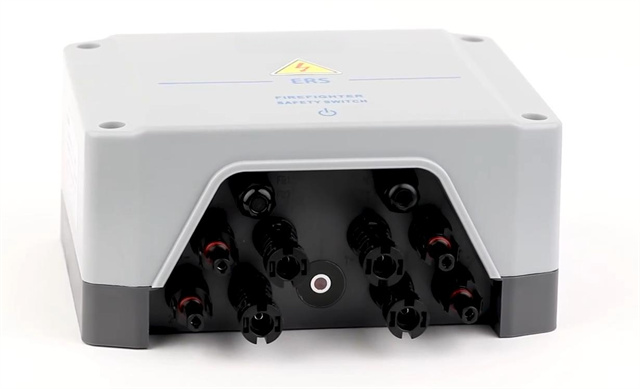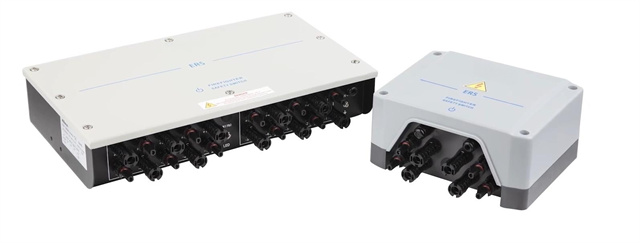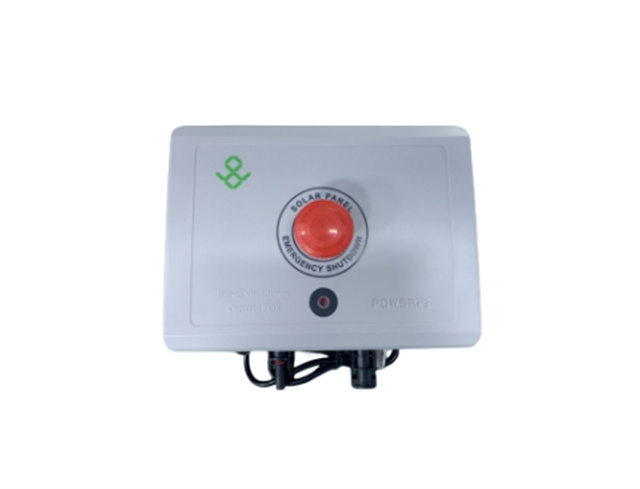Author:BLD Solar Energy SystemFROM:Solar System Converter Manufacturer TIME:2023-08-23
The solar industry has experienced significant growth in recent years, with solar photovoltaic (PV) systems becoming increasingly popular as a source of clean and renewable energy. As the industry continues to evolve, the focus on safety and efficiency has become paramount. One crucial aspect of solar PV systems is the rapid shutdown system, also known as Solar BOS (Balance of System) rapid shutdown systems. In this article, we will provide a market analysis of Solar BOS rapid shutdown systems, highlighting their importance, current trends, and future prospects.

Solar BOS rapid shutdown systems are designed to enhance the safety of solar PV systems by quickly de-energizing them in the event of an emergency or maintenance. These systems enable firefighters and other first responders to safely work in close proximity to solar installations without the risk of electrical shock or injury.
Furthermore, Solar BOS rapid shutdown systems are crucial for meeting regulatory requirements, such as the National Electrical Code (NEC) in the United States. NEC 2017 introduced the requirement for rapid shutdown systems to minimize the risk of electrical hazards. Since then, many jurisdictions have adopted these regulations, making Solar BOS rapid shutdown systems a mandatory component of solar PV installations.

The market for Solar BOS rapid shutdown systems has witnessed several notable trends in recent years. Firstly, there has been a remarkable increase in system integration and compatibility. Manufacturers are striving to develop solutions that can seamlessly integrate with various PV system architectures, making installation and maintenance easier for solar installers.
Secondly, wireless communication technologies have gained prominence in the solar BOS rapid shutdown systems market. Wireless solutions eliminate the need for physical wiring, reducing installation complexity and costs. These technologies also offer increased flexibility in system design and scalability.
Finally, there has been a growing demand for smart rapid shutdown systems that provide advanced monitoring and control capabilities. These systems enable solar PV operators to remotely monitor and manage their installations, ensuring optimal performance and improved maintenance efficiency.

The future of Solar BOS rapid shutdown systems looks promising, with several key factors driving their growth. Firstly, the increasing adoption of solar energy worldwide is expected to fuel the demand for these systems. As more countries strive to achieve their renewable energy targets, the need for safe and efficient solar installations will rise.
Secondly, ongoing technological advancements are likely to enhance the functionality and performance of Solar BOS rapid shutdown systems. Innovations such as advanced fault detection algorithms, improved wireless communication protocols, and enhanced system integration capabilities will further optimize these systems.
Lastly, the focus on sustainability and environmental consciousness will continue to drive the solar industry's growth, providing a favorable market environment for Solar BOS rapid shutdown systems. Governments and organizations worldwide are increasingly recognizing the importance of renewable energy, offering incentives and policies that promote solar adoption.
In conclusion, the market analysis of Solar BOS rapid shutdown systems highlights their critical role in ensuring the safety and regulatory compliance of solar PV installations. Current trends indicate increased integration, wireless communication, and smart functionalities. The future prospects of these systems are promising, driven by the growing adoption of solar energy, technological advancements, and sustainability initiatives. As the solar industry continues to expand, the demand for Solar BOS rapid shutdown systems will undoubtedly continue to rise, making them an integral part of the solar PV ecosystem.
